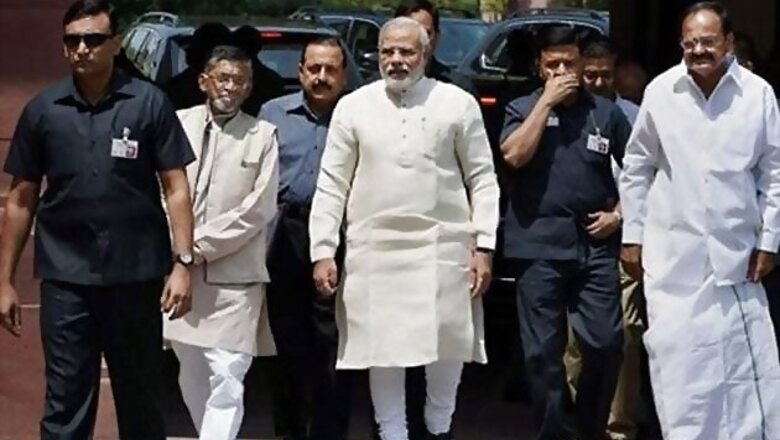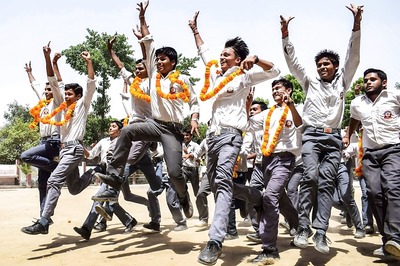
views
New Delhi: It appears to be a race against time as the government mulls convening an early Winter Session of Parliament to ensure rollout of the ambitious nationwide indirect tax regime GST by April, 2016.
To meet this target for one of the most crucial economic reforms, it has become imperative on part of the government to advance the Winter session, which traditionally begins in the third week of November, and get the facilitating constitution amendment bill passed in the first half itself to seek ratification by at least half of the state legislatures.
The winter session for most state legislatures begin between late November and early December and it is important for the bill to be passed from Parliament by that time to ensure that the same is taken up for ratification by states, the government sources said.
Article 368 of the Constitution states that certain constitution amendment bills -- GST being one of them -- need to be ratified by at least 50 per cent of state legislatures. The 99th Constitution Amendment Act, which led to setting up of the National Judicial Appointments Commission, also required the ratification of state legislatures.
On the other hand, the 100th Constitution Amendment Bill for ratification of the Land Boundary Agreement, did not require ratification by the states. It was signed into an Act by the President days after it was cleared by Parliament.
"There are certain Constitution Amendment Bills which affect the set-up of the higher judiciary, that is the Supreme Court and 24 High Courts. Then, there are some which affect the federal structure in terms of powers of the Centre and the states. Such bills require ratification by state legislatures," a senior government functionary explained.
Before the GST is finally rolled out, the government plans to pass the enabling legislation in the Budget session in 2016 to give effect to the constitution amendment. The government functionary said that the enabling legislation itself was a "bulky" document.
The government had to give up its plan to call an extended Monsoon Session of Parliament to get the GST Bill approved. Therefore, it is now looking to advance the Winter Session soon after the Bihar polls to pass this bill, which is being seen as very important part of the Modi government's economic reforms agenda.
Asking Congress, which virtually vetoed the government's plan to convene the special session, to "eschew from negative politics", Parliamentary Affairs Minister M Venkaiah Naidu said last week there is still scope for meeting the April 1, 2016 deadline for the GST Bill and expressed readiness to call an early Winter Session.
While Parliament need to pass the enabling legislation, the states will have to pass their own enabling legislations for introduction of the Goods and Services Tax (GST), a nationwide tax which would subsumes various central indirect taxes, including the Central Excise Duty, Countervailing Duty and Service Tax, as also state-level Value Added Tax (VAT), octroi and entry tax and luxury tax, among others.


















Comments
0 comment